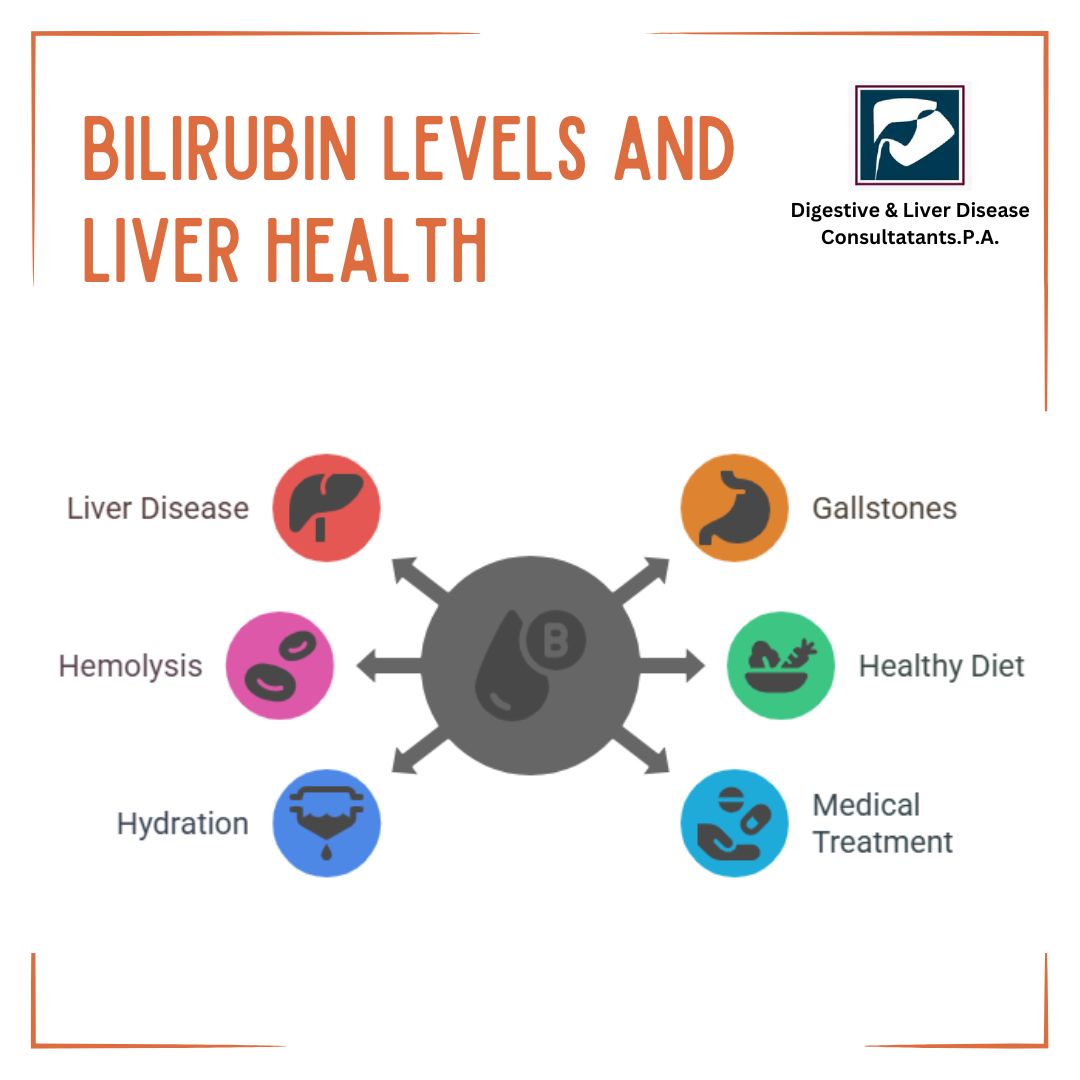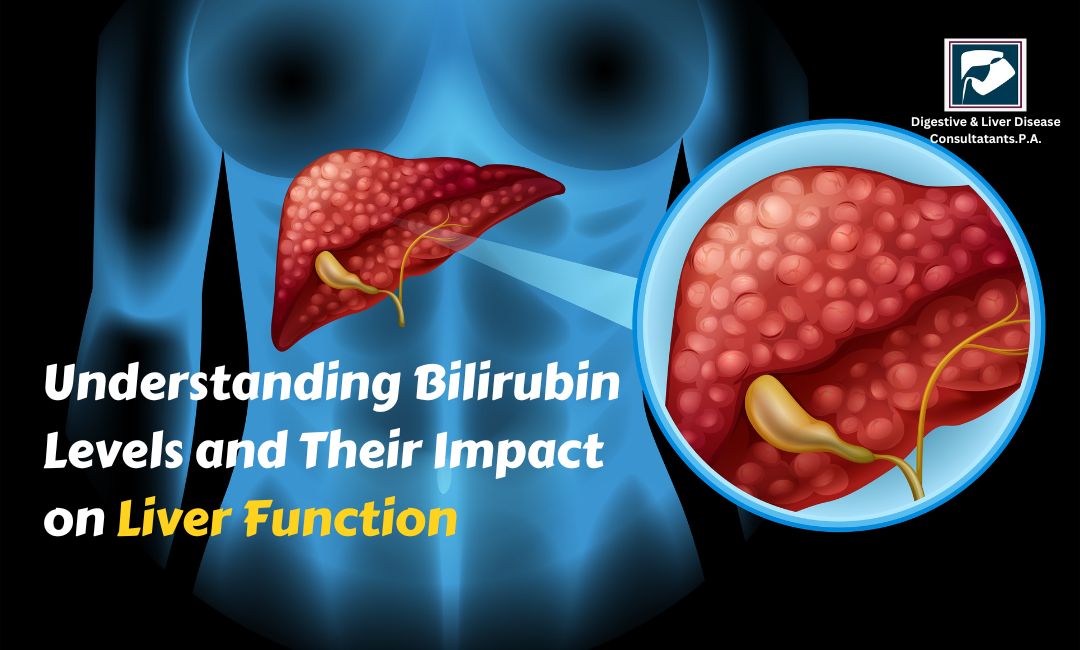The liver is a vital organ that performs many essential functions, including detoxifying the body, producing bile for digestion, and processing nutrients from the food we consume. One of the key processes that the liver handles is the breakdown of hemoglobin from red blood cells. As part of this process, bilirubin is produced. Bilirubin levels in the body are an important indicator of liver health, and understanding how they work can provide insight into how well your liver is functioning. In this blog, we will explore what bilirubin is, how it affects liver function, and what changes in bilirubin levels may mean for your health.
What is Bilirubin?
Bilirubin is a yellowish substance that is produced when the liver breaks down hemoglobin from old or damaged red blood cells. Red blood cells have a lifespan of about 120 days, after which they are broken down and processed by the liver. The hemoglobin inside these cells is then broken down into heme, which is converted into bilirubin.
Bilirubin is primarily excreted from the body through bile, a substance that is produced by the liver and stored in the gallbladder. Bile helps with digestion, especially in the breakdown of fats. Bilirubin is what gives bile its yellow-green color, and it is eventually removed from the body through the stool, which is why stools are typically brown in color.

There are two types of bilirubin:
Unconjugated Bilirubin: This is the form of bilirubin that is initially produced in the body. It is fat-soluble and cannot be easily excreted. It travels to the liver, where it is processed and made water-soluble.
Conjugated Bilirubin: After bilirubin reaches the liver, it becomes conjugated (or bound) with a substance called glucuronic acid. This process makes bilirubin water-soluble, allowing it to be excreted through bile and eventually removed from the body through the stool.
The Role of the Liver in Bilirubin Processing
The liver plays a critical role in processing bilirubin. When the liver is functioning normally, it efficiently processes unconjugated bilirubin into conjugated bilirubin, which is then excreted via bile. However, when the liver is damaged or not functioning properly, it may struggle to process bilirubin efficiently. This can result in elevated levels of bilirubin in the blood, which can lead to jaundice, a condition where the skin and eyes become yellowish due to the buildup of bilirubin.
Normal Bilirubin Levels
In a healthy individual, bilirubin levels are typically measured through a blood test. Normal levels of bilirubin vary depending on whether it is unconjugated or conjugated. Generally, normal levels of total bilirubin range from 0.1 to 1.2 milligrams per deciliter (mg/dL) of blood. The breakdown is as follows:
- Unconjugated Bilirubin: 0.2 to 0.8 mg/dL
- Conjugated Bilirubin: 0.1 to 0.4 mg/dL
These values can vary slightly based on the laboratory or the method used to measure bilirubin levels. If bilirubin levels fall outside the normal range, it can be a sign of liver problems or other medical conditions.
Causes of Elevated Bilirubin Levels
Elevated bilirubin levels can be a sign of a number of different conditions, ranging from mild to serious. Some of the common causes include:
Liver Diseases: Conditions like hepatitis, cirrhosis, and liver cancer can impair the liver's ability to process bilirubin properly. When liver function is compromised, bilirubin can accumulate in the blood, leading to jaundice.
Gallbladder Problems: Blockages in the bile ducts, such as those caused by gallstones or tumors, can prevent the flow of bile and bilirubin from the liver to the intestines. This can cause bilirubin to back up into the bloodstream.
Hemolytic Anemia: In cases of hemolytic anemia, red blood cells are destroyed at an accelerated rate. This results in an increased amount of bilirubin being produced as the body tries to process the breakdown of these red blood cells.
Genetic Disorders: Certain inherited conditions, such as Gilbert's syndrome, can lead to elevated unconjugated bilirubin levels. In these cases, the liver has a reduced ability to process bilirubin, though the condition is usually mild and not harmful.
Liver Infections: Viral infections, such as hepatitis A, B, or C, can damage the liver and interfere with bilirubin processing.
Medications: Some medications can affect the liver's ability to process bilirubin, leading to elevated levels. This is often a temporary side effect that resolves once the medication is stopped.
Symptoms of Elevated Bilirubin Levels
When bilirubin levels are elevated, a person may experience symptoms related to jaundice, which include:
Yellowing of the Skin and Eyes: This is the most noticeable symptom and occurs as a result of bilirubin building up in the bloodstream and being deposited in the skin and sclera (the white part of the eyes).
Dark Urine: The excess bilirubin may also cause urine to become dark brown or tea-colored.
Pale or Clay-Colored Stools: Since bilirubin gives stool its normal brown color, a lack of bilirubin in the stool can cause it to become pale or clay-colored.
Fatigue and Weakness: These symptoms are common in conditions that affect the liver or cause anemia, both of which can lead to elevated bilirubin levels.
Diagnosing and Treating Elevated Bilirubin Levels
If elevated bilirubin levels are suspected, a doctor will typically perform blood tests to measure bilirubin levels and assess liver function. Additional tests, such as liver imaging (ultrasound, CT scan) or a liver biopsy, may be necessary to determine the underlying cause of the elevated bilirubin levels.
Treatment for elevated bilirubin levels depends on the underlying cause. For example:
If liver disease is the cause, treatment may involve medications, lifestyle changes, or, in severe cases, a liver transplant.
If a blockage in the bile duct is found, surgery or other procedures may be needed to remove the obstruction.
For conditions like hemolytic anemia, treatment will focus on managing the underlying blood disorder.
The Role of Digestive & Liver Disease Consultants, P.A.
At Digestive & Liver Disease Consultants, P.A., we specialize in the diagnosis and treatment of liver conditions that affect bilirubin levels and overall liver function. Our team of experienced specialists is dedicated to providing the highest quality of care, with a focus on personalized treatment plans tailored to each patient's unique needs.
If you are experiencing symptoms such as jaundice, fatigue, or digestive issues, it is important to seek professional medical advice. Our experts can help determine the cause of your elevated bilirubin levels and provide appropriate treatment to manage your liver health.
Conclusion
Bilirubin is a key substance produced by the liver as part of the process of breaking down red blood cells. Elevated bilirubin levels can be a sign of liver dysfunction or other underlying conditions. By understanding bilirubin levels and their impact on liver function, you can better manage your health and seek timely treatment if necessary.
If you have concerns about your liver health or elevated bilirubin levels, contact the specialists at Digestive & Liver Disease Consultants, P.A. today. Our team is here to help diagnose and treat liver conditions, ensuring that you receive the best possible care for your digestive and liver health.






